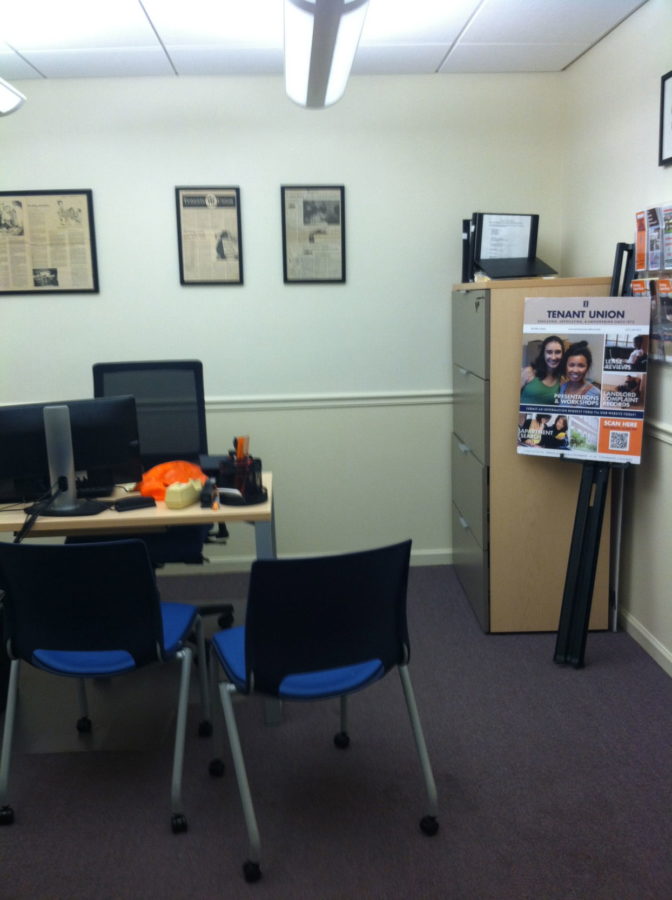Learning the Lease
October 7, 2014
Like any textbook, reading a lease requires a set of skills to understand its technical language. But all hope is not lost for the lease-illiterate — the University’s Tenant Union provides free services to students who need help understanding their lease.
“It is very difficult for someone who has no training to read a lease,” said Brittany Glenn, program manager at the Tenant Union and 2012 University alumna in AHS. “We have lots of training in leases, so we know where to look and what to look for. And once students come here, they can eventually do it themselves. It’s about showing them those life transferable skills so that they can do them on their own.”
First, before even reading a lease, it is important to understand the two types.
Individual vs. joint
Leases can exist as either individual or joint contracts, said housing counselor Sharonpreet Singh, senior in LAS.
Get The Daily Illini in your inbox!
With individual leases, a student is only responsible for his or her own apartment. On the other hand, joint leases hold an individual and his or her roommates responsible and liable for rent and damages. This often causes problems in negotiation of rent costs, she added.
With a joint lease, “Students can sign a lease and the other roommates won’t come to sign it, and they’re stuck with a rent with way more of what they want to pay,” Singh said.
Once this is settled, students should follow three important steps:
Do sufficient research
The first suggestion Glenn gives students is to check the Tenant Union’s Landlord Complaint Records to know what kind of landlord they will potentially be renting from.
The records, which cover landlords in both Champaign and Urbana, are derived from past student experiences and can be found online or accessed at the Tenant Union, located in room 326 at the Illini Union.
View the actual unit
Once a potential apartment is selected, view the exact apartment – not the model unit.
Pictures online and model units may vary from the actual unit because no one has lived in those apartments before, Glenn said.
Thus, is it crucial to set up an appointment with the landlord and to specify the unit you are interested in renting.
Bring an unsigned lease copy
If the apartment meets a student’s expectation, the next step is to bring a copy of the lease to the Tenant Union for review — unsigned.
Because a lease is a legal document, nothing can be changed once it is signed, Glenn cautioned.
Students often forget to follow this crucial step, which results in a lot of issues because of the lack of careful reading and understanding of lease clauses and specific landlord regulations, she said.
“We are seeing a lot of issues, recently, where students aren’t paying attention to move-out times, so they are charged a fee per day for staying in the unit longer for what their lease states,” Glenn said.
These charges can be as high as $100 a day, she said.
Other common problems involve conflicts with rules regarding pets, smoking, rent costs, rent due dates and the duration of the lease period.
In addition, students need to make sure that they receive promises of furniture and other requests in written form, not verbal communication.
If it is not written, landlords are not liable to provide the promised objects or services, Glenn said.
Precautionary measures
One lease component that is not mandatory but highly recommended is renter’s insurance.
Students should thoughtfully consider purchasing renter’s insurance because the landlord is not responsible for replacing items if something were to happen in the unit, Glenn said.
Unfortunately, Mike Yoo, junior in Engineering, experienced this firsthand.
A frozen pipe burst on the second floor and flooded his apartment. Yoo and his roommates were not liable for the water damage; however, they did not receive reimbursement for his damaged belongings because he did not have renter’s insurance.
“They weren’t able to give reimbursement because under the lease we were responsible for our own belongings,” Yoo said. “The landlord recommended renter’s insurance, but we didn’t think it’d be a big of a deal because we thought we were pretty responsible.”
While this incident was unfortunate and costly, Yoo said that he now makes sure to read the lease carefully, and even plans on buying renter’s insurance for his apartment this year.
The Tenant Union is open from 9 a.m. to 5 p.m. Monday through Friday. In addition to lease reviews, the Tenant Union offers free services involving apartment, landlord and tenant troubles.
Stephanie can be reached at [email protected].







